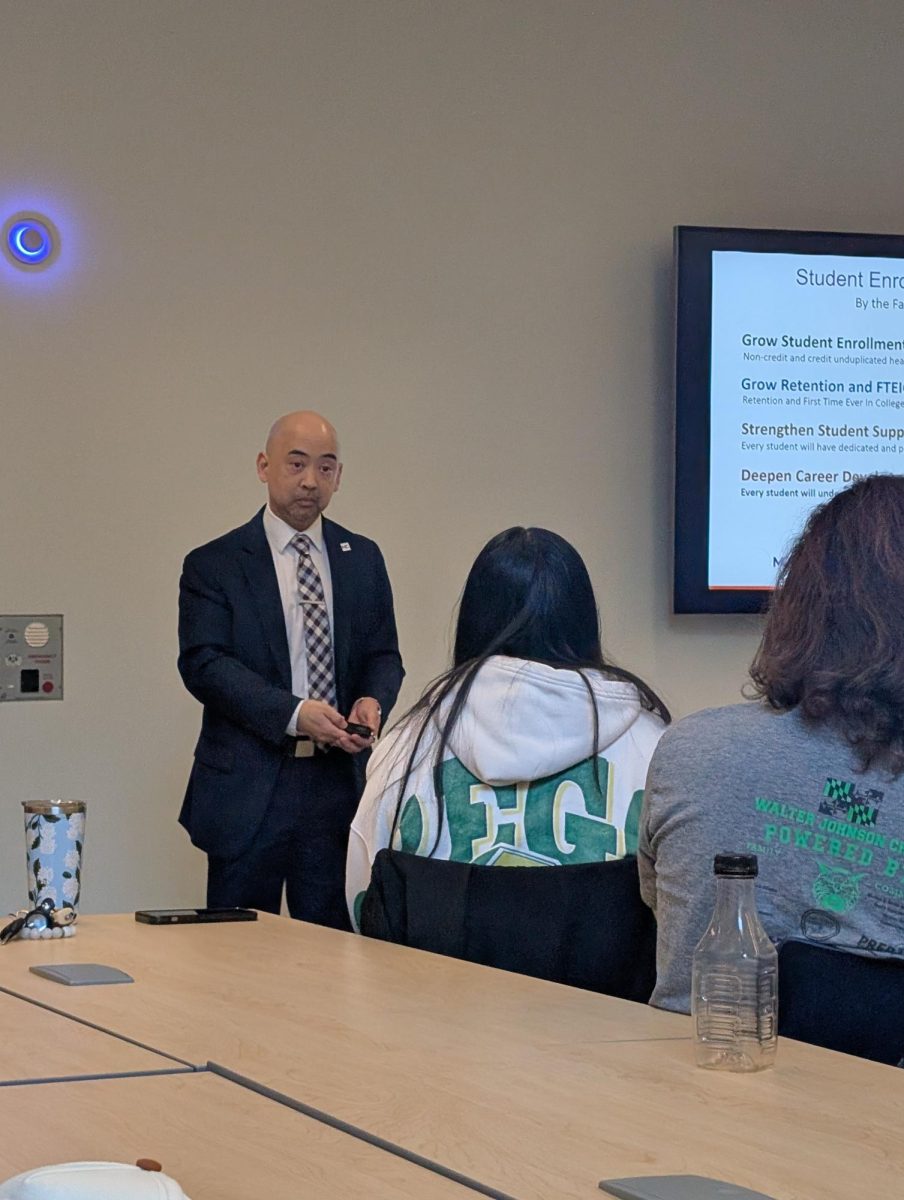In a change to Montgomery College’s grading policy, American English Language Program (AELP) courses will no longer affect student grade point averages. According to a memo released on Sept. 12 by the new Senior Vice President for Academic Affairs, Dr. Donald M. Pearl, a new policy change will impact how grades earned in AELP courses factor into student GPAs. Dr. Pearl has determined that grades earned in AELP courses will no longer be calculated into students’ GPAs. He explained that the decision was based mainly on the fact that AELP courses are not required for graduation and therefore do not award students degree or transfer credits. In the memo, Dr. Pearl clarified that the collegiate norm in regard to how institutions calculate GPAs dictates that a student’s GPA should only be impacted by credits they earn in courses required for earning a degree. This change in policy will take effect during the Spring 2013 semester and will apply to AELP courses held on all three Montgomery College campuses.
The outcome regarding the controversy of whether AELP course grades should be factored into student GPAs or not has come about as a result of roughly two years of extensive research and deliberation. The first instance of significant change within the AELP occurred in 2009 when college administration officials changed the catalog descriptions of AELP courses in order for them to fit new financial aid guidelines. Later, in the spring of 2010, the American English Language Program/Institutional Credit (AELP/IC) Workgroup was formed to find a solution to rising student concerns regarding AELP grades earning institutional credit yet being included in student GPAs.
The AELP/IC Workgroup was formed primarily to collect, analyze, and interpret data in order to draw a concrete conclusion about whether or not AELP grades negatively affected students. During their 11-month discussion, the AELP/IC Workgroup looked at student performance data provided by the Office of Institutional Research and eventually decided the data was inconclusive. According to Dr. Tony Hawkins, lead dean of the AELP program and AELP/IC Workgroup convener, the research took two cohorts of students in the AELP and factored their GPAs with and without AELP class grades. The Workgroup mentioned in their final April 14 memo that only approximately 50 percent of student GPAs were negatively impacted. The other half of student GPAs were positively impacted. The outcome thus failed to warrant a change in policy, though the Workgroup ultimately agreed that further investigation was necessary.
Takoma Park/Silver Spring AELP coordinator Professor Angela Nissing was an active member of the Institutional Credit Alternatives (ICA) committee whose purpose was to address and assess the validity of student concerns regarding AELP courses and institutional credit after the AELP/IC’s April 14 decision. Professor Nissing explained that the committee considered a multitude of research before recommending that the decisions concerning institutional credit be part of a forthcoming holistic redesign of the AELP program. Though the ICA committee advised against removing institutional credit until the AELP program is completely redesigned, Senior Vice President Pearl was responsible for enacting a more immediate decision.
Despite a seemingly positive reaction from the majority of students and staff, there have been mixed feelings from faculty members regarding the change in policy. In Professor Nissing’s opinion, “Institutional credit may not have been the ideal system of credit for AELP students. However, simply removing it is not the answer.” Dean Hawkins expressed that the current decision was very hard on faculty members who were fighting to preserve the original system because they felt the new policy did not capture the uniqueness of AELP courses. Other students and faculty members continue to be neutral about the issue.
In regard to the future of the American English Language Program, it is still uncertain. Senior Vice President Pearl claims, “There will be no change in the classroom or learning environment,” but Professor Nissing predicts a continuation of the current program re-structuring discussion. As she puts it, “There is no easy, simple answer. The impacts of such a decision cannot be completely foreseen in advance. Though both workgroups on institutional credit did their best to research the possible results of these changes, I imagine a surprise or two may be in store,” and if that is true, she and all AELP faculty members encourage students to seek assistance once again.







